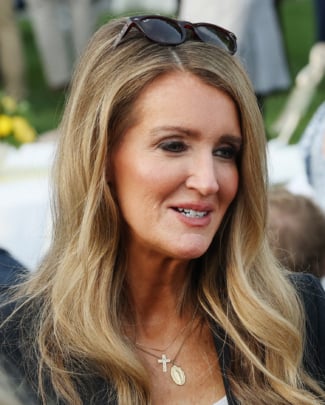WOKE CULTURE IN FINANCIAL SERVICES
EVANSTON IL TO BECOME FIRST CITY TO PAY REPARATIONS
THE NOT SO EQUAL “EQUALITY ACT”
PRESIDENT BIDEN ON INTERNET CENSORSHIP
YOU CAN STOP CRITICAL RACE THEORY IN YOUR SCHOOLS
WOKE CULTURE IN FINANCIAL SERVICES
We all know by now that Big Tech is woke, but what you might not know is that the financial sector is in the same camp. Yes, really. The original capitalists are now Marxist warriors for social justice and equity.
So says Stephen Soukup, author of The Dictatorship of Woke Capital: How Political Correctness Captured Big Business, who brings to his study the ethos of a financial insider himself. Like Big Tech, Big Finance is willing “to use the structure of the capital markets to supersede the democratic will of the people to advance progressive policies that would otherwise be politically untenable.”
Soukup offers surprising insights into the philosophical roots of woke business. . . .
Soukup goes from Jean-Jacques Rousseau’s 18th-century socialism, through the Frankfurt School of the 1920s, to its American popularizer Herbert Marcuse. The latter’s book, Eros and Civilization (1959) promoted unlimited sexual perversion, including with pre-adolescents, to overcome the supposed social constraints on our freedom.
Soukop is pithy and entertaining. He gets to the 1960s in just ten pages, then sums up a disgusting moment with tension-relieving evocation:
The thing that Marcuse provided the New Left was intellectual legitimacy. Rather than a bunch of bored kids running around, screwing everything in sight, experimenting with drugs, and trying desperately to avoid serving their country in war, Marcuse made the movement ‘respectable.’
Soukup presents startling historical insights too. The first progressive U.S. president, Woodrow Wilson, was bankrolled into an academic and political career. . . .
In 1907, financiers manipulated the “Bankers’ Panic” to agitate for a central bank that would serve the interests of investment bankers. Republican President William Howard Taft was unpersuaded, so they encouraged Theodore Roosevelt back into politics to challenge him for the Republican Party’s nomination. . . .
The Federal Reserve was the first of the unelected centralized administrative institutions. Wilson had studied for his Ph.D. under Richard Ely, a political economist trained in Germany and employed at Johns Hopkins—a university founded in imitation of Victorian-era German progressive universities. Ely and Wilson founded the institutions and doctrine for the administrative state, that is, rule by unelected administrators. As Soukup sums up their thinking, “people are too ignorant and too selfish to vote for that which is in their own best interests, or the best interests of society as a whole.”
Wilson regarded administration as more business than politics. He wanted administrators to be rational, scientific managers, like himself. Since private businesses need the same kinds of managers, business and government should be aligned. . . .
In the 1970s, Milton Friedman countered with what came to be known as “the Friedman doctrine” but is more accurately termed the “shareholder theory of capitalism.” Friedman prescribed that business must comply with laws and customs, but should leave “social responsibilities” as personal choices. Otherwise, corporate chiefs would be acting outside the interests of at least some of the shareholders.
In the same decade, however, business schools turned the analytical concept of “stakeholder” (which helps you plan against the reactions of different stakeholders) into an alternative mission. The mission was no longer to serve shareholders by navigating stakeholders, but to serve stakeholders while navigating shareholders. This is undemocratic, because only shareholders have a direct vote. It also goes against property rights, because only shareholders have a material stake in the business.
In the 1980s, progressive corporate leaders misrepresented Friedman as advocating short-term maximization of “shareholder value” (stock price and dividends), at the expense of reinvestment. They blamed Friedman for their own misdeeds. As Soukup puts it, reifying stakeholders is a euphemism for “shareholders are annoying.”
In the 1990s, Bill Clinton replayed FDR’s populism. He appointed Robert Rubin to direct the National Economic Council in 1995, just in time to rescue his former employer Goldman Sachs from its mismanagement of the Mexican Peso crisis. Rubin went on to repeal the Glass-Steagall Act, which FDR had signed in 1933 to separate commercial and investment banking. Thus was seeded the reckless speculation, and invented “financial instruments,” that gave us the 2008 Great Recession.
And who was one of Barack Obama’s advisers at the time of that recession? Robert Rubin. . . .
Shareholders were further de-democratized in the 2000s, given the consolidation of proxy services, which vote in shareholder meetings on behalf of asset managers, with less regulation. They simultaneously sell ratings and advisories to those they represent, akin to a “protection racket.” Two companies dominate 97 percent of proxy advisory business. . . .
For instance, in 2016, big corporations threatened to withdraw from North Carolina when its legislature ruled that people must use toilets according to gender. In 2019, hundreds of CEOs signed a full-page advertisement in the New York Times declaring that the State of Georgia’s law to restrict abortion was “bad for business.”
In March 2020, the Federal Reserve asked the world’s largest money management firm, BlackRock, to manage its new corporate bonds. Why corporate bonds? And why BlackRock? Because its CEO, Larry Fink, had declared a few weeks earlier that investing should prioritize environmental sustainability. Yet BlackRock is heavily invested in Chinese assets that would not pass the same standards. And because American assets are more regulated, these investments disadvantage American business.
The Trump Administration proposed to regulate proxy services like asset managers, but consultation and implementation takes years. . . .
As you should expect by now, Soukup is direct in his criticisms and in his conclusions. He ends the book unambiguously with a prescription to “depoliticize business, depoliticize markets, back to neutral.” The same directive could be applied to any sector these days.
Share your thoughts on how the woke has captured even financial services. . .
(Excerpt from American Greatness. Article by Bruce Oliver Newsome. Photo Credit: Unsplash.)
Partner with Us
Intercessors for America is the trusted resource for millions of people across the United States committed to praying for our nation. If you have benefited from IFA's resources and community, please consider joining us as a monthly support partner. As a 501(c)3 organization, it's through your support that all this possible.


We use cookies to ensure that we give you the best experience on our website. If you continue to use this site we will assume that you are happy with it. Privacy Policy




Comments
Those of you who don’t know about BlackRock need to find out who they are. They are going to be HUGE in this administration!! I heard all about their agenda and it is astounding! Christians, do your homework, learn who they are and don’t be caught by surprise. So much information on them, too long to go into here. Financially, they are going to play an overwhelming role in our country! Pray, pray, and look BlackRock up!